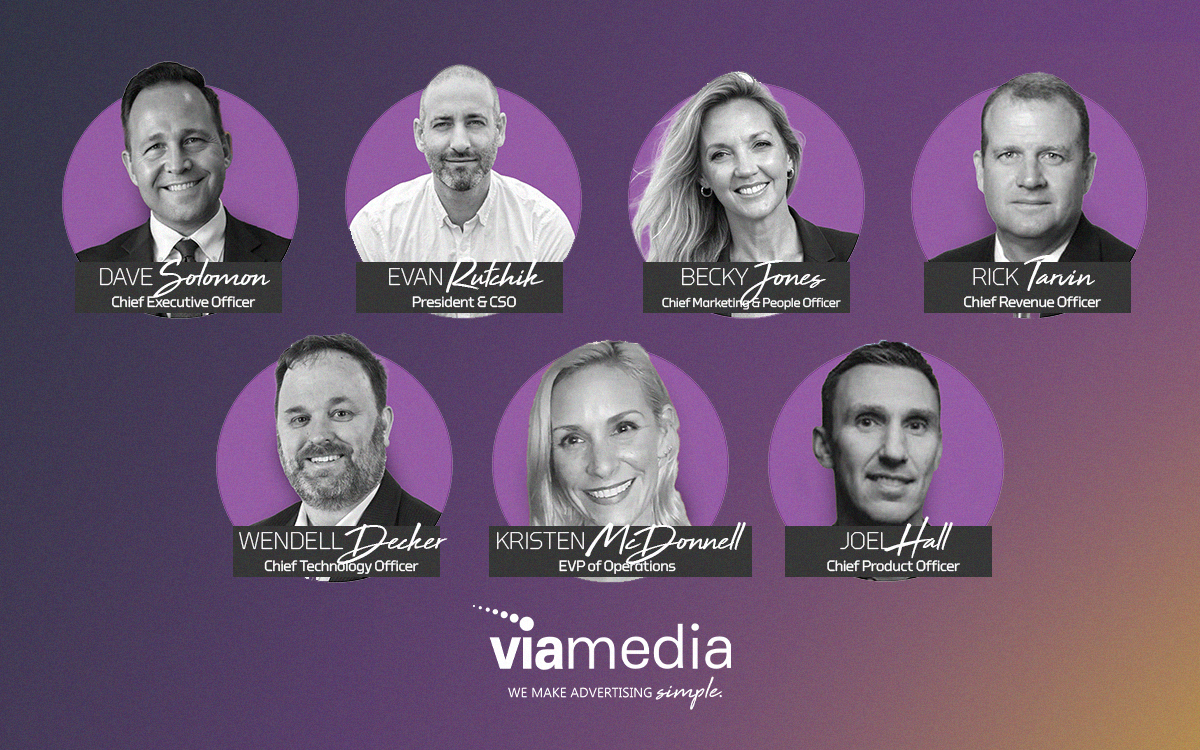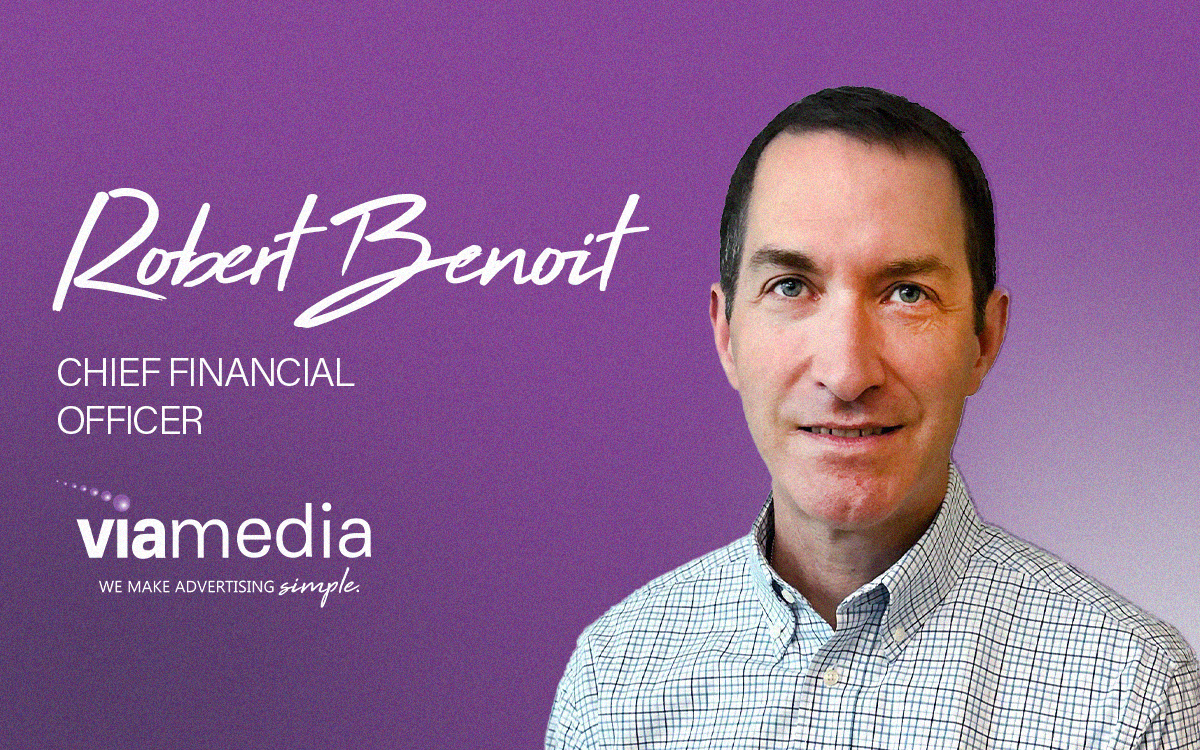Viamedia recently won Adams Cable Service business, which had previously gone to a large competing operator.
With traditional pay TV experiencing industry declines some service providers are forgoing video and related advertising businesses to focus on high-speed internet customers, however it’s a move that Viamedia CEO and President David Solomon categorizes as a “massive mistake.”
Viamedia is an independent cross-media local advertising tech and sales company that’s working to help smaller and mid-sized TV ad operators (ie MVPDs and cable operators) pull higher margins out of their advertising businesses and serve as a shepherd for local and regional advertisers in an increasingly complex market. It’s also moving into the streaming arena and tackling addressable advertising.
One aspect of Lexington, Kentucky-based Viamedia that’s distinct from some other players is that it’s hyper focused on local. In an interview with Fierce Video Solomon said around 60-70% of its accounts are local and regional advertisers, and around 25%-30% national – with the latter reflecting a much smaller volume but larger budgets.
“We work really hard for a lot of little campaigns,” he said.
These days as streaming is proliferating and TV advertising and measurement is undergoing a shift to look more like digital, it’s created confusion in the market both for service providers and local or regional advertisers. Solomon explained that local ad sales is a very expensive and difficult piece of the business. Whereas national and regional advertising on the other hand are very high margin businesses that many focus on, looking to capture big clients, bigger budgets and arguably less work. However, at what Solomon referred to as the “Randy’s Bike Shop local local” level, ad sales requires a lot of feet on the ground, coaching, and dialog with clients.
“It’s a market that is underserved and the local businesses are frustrated. There’s so many options, so much data, and they really need someone to guide them and coach them through,” he said, adding that’s particularly true in the digital space where there are several vendors pitching similar products, adding to confusion.
To that end, it's about “making sure that your teams are skilled and are delivering really credible research so that a local business owner can make a quality decision with facts and figures,” with Viamedia serving as a guide “through this mess of the advertising industry.”
Viamedia provides end-to-end services from the sale to billing, including technology with a proprietary cloud-based QTT platform, and all the parts in between until the provider gets a check.
“When an MVPD engages with us, they turn over the keys to the car and they want us to drive it, fix it, run it,” Solomon said, although noted it also has the flexibility to be as much or as little involved as the provider partner wants.
That said, the industry and Viamedia itself has seen some companies that want to walk away from TV advertising businesses as they pivot from bundling video offerings to instead focus on higher-margin high-speed internet customers. But Solomon thinks this is a misstep and that companies aren’t realizing there’s a way to continue the ad business in an economical way.
The strategy appears to be working with Viamedia securing 11 new service provider partners in 2022 and marking growth for its managed services business. For the managed services piece it’s “truly the operational backend” including executing orders and all operations with investment in infrastructure that can be spread over 70 MVPD partners. As a single MVPD that would be very expensive to do he noted, and again some cable companies are opting to not pursue an advertising business at all as they drop video altogether or outsource to a streaming service.
He acknowledged some operators have raised their hands to get out of the TV advertising business saying, it’s expensive, confusing and not the company’s highest-margin area.
But Solomon equated this to one having a bad meal and deciding to never eat again.
“And that’s what some of these companies are saying, ‘We’re gonna stop eating’,” he said, whereas Solomon’s take is that there’s a smarter, more cost-effective way to do it.
“You can create higher margins, better customer experience, just by using the right partners,” adding that’s where Viamedia comes in. “We can operationalize this for you and save you a ton of money.”
When operators stop bundling high-speed internet with a TV or another product and only compete on broadband, it’s difficult to differentiate and Solomon said they’ve seen “customer churn rates go up quite a bit” where providers ultimately lose more money over time if customers leave.
Most of Viamedia’s deals come through word of mouth through other operators, according to Solomon. And those that have tapped the vendor tend to stick around. In fact, the chief executive said Viamedia has not lost a single contract in two years. It just recently nabbed a win, securing business from Adams Cable Service, which had previously gone to a large competing operator.
Blending traditional TV and streaming
Solomon noted that TV is becoming more digital in the use of analytics to buy and plan advertising, along with shifts towards programmatic and addressable – a space Viamedia needs to play. He said that’s what a lot of its local advertisers are looking for, in terms of wanting to see conversion data, return on investment and the like. And while he often hears refrains of traditional TV eroding, Solomon doesn’t see traditional linear operators going anywhere for a while.
For Viamedia he sees an opportunity to blend traditional TV and streaming, saying there will be a period of time where both formats need to work together.
“At some point, streaming will be the most dominant player and there’ll be very little traditional television at some point, but I think that’s a decade away.”
In terms of streaming and linear playing nice together, Viamedia has a product it developed, called a Parity ADS (ad decisioning server) – one of its three forms of ADS – which can helps assist as a provider is transitioning to streaming over time by supporting simultaneous linear and CTV advertising. With Parity he gave the example of a cable operator with 50,000 homes in its footprint making a switch to streaming, with the need to have two systems running. Perhaps 5,000 homes take the streaming platform the first year and 45,000 stay on traditional, followed by 10,000 on streaming the next year in what’s ultimately a slow migration that requires Viamedia and the operator to run two platforms for a period. For advertisers that also presents a challenge as it has to be sold two different ways. But with Parity ADS an advertiser can run the same campaign on traditional and on streaming, with the exact same break across both, according to Solomon, making it easy for both the operator and advertisers.
Viamedia can also target down to the household for addressable advertising and works with any flavor of middleware platform that an operator might also use. When it comes to data Viamedia currently primarily works with second- and third-party data partners but Solomon said it’s been pushing operators for first-party data because it’s very valuable. Still, while Viamedia already has access to some first-party data he said a lot of operators aren’t comfortable exposing it because of concerns related to security.
Political years a boon for local
Political cycles also prove to be particularly fortuitous for local advertising, with large budgets allocated, especially for competitive races.
Political spending tends to ebb and flow every other year, but Solomon said when it does it’s significant and Viamedia’s highly concentrated on driving and maximizing political ad dollars for its MVPDs, investing a lot of money and time in hiring the right people – which appears to be driving results.
“Typically, most of the new operators that we take over the political, revenues triple, quadruple the first year,” Solomon said. He expects to see a steady incline and thinks 2024 is “going to be a monster” for political advertising as the more controversial and competitive an election is, the better for the ad space.
A recent advertising forecast from Magna noted the U.S. ad market would be impacted by a lack of cyclical events in 2023, including political elections and sporting events, which contribute roughly $7 billion in in ad spend alone for even-numbered years.
A final but key factor that Solomon believes makes Viamedia unique is the quality of the people. With a background in industrial psychology, he emphasized that it’s not just smoke and mirrors but said there’s a real focus on taking care of its employees to ensure they’re passionate, skilled and well-trained.
“Because at the end of the day, they’re a translator between the local business community, the regional business community, and the national. They’re the folks that are actually out there having the dialogue,” he said. “So our belief is we’ve got to take care of our people.”





